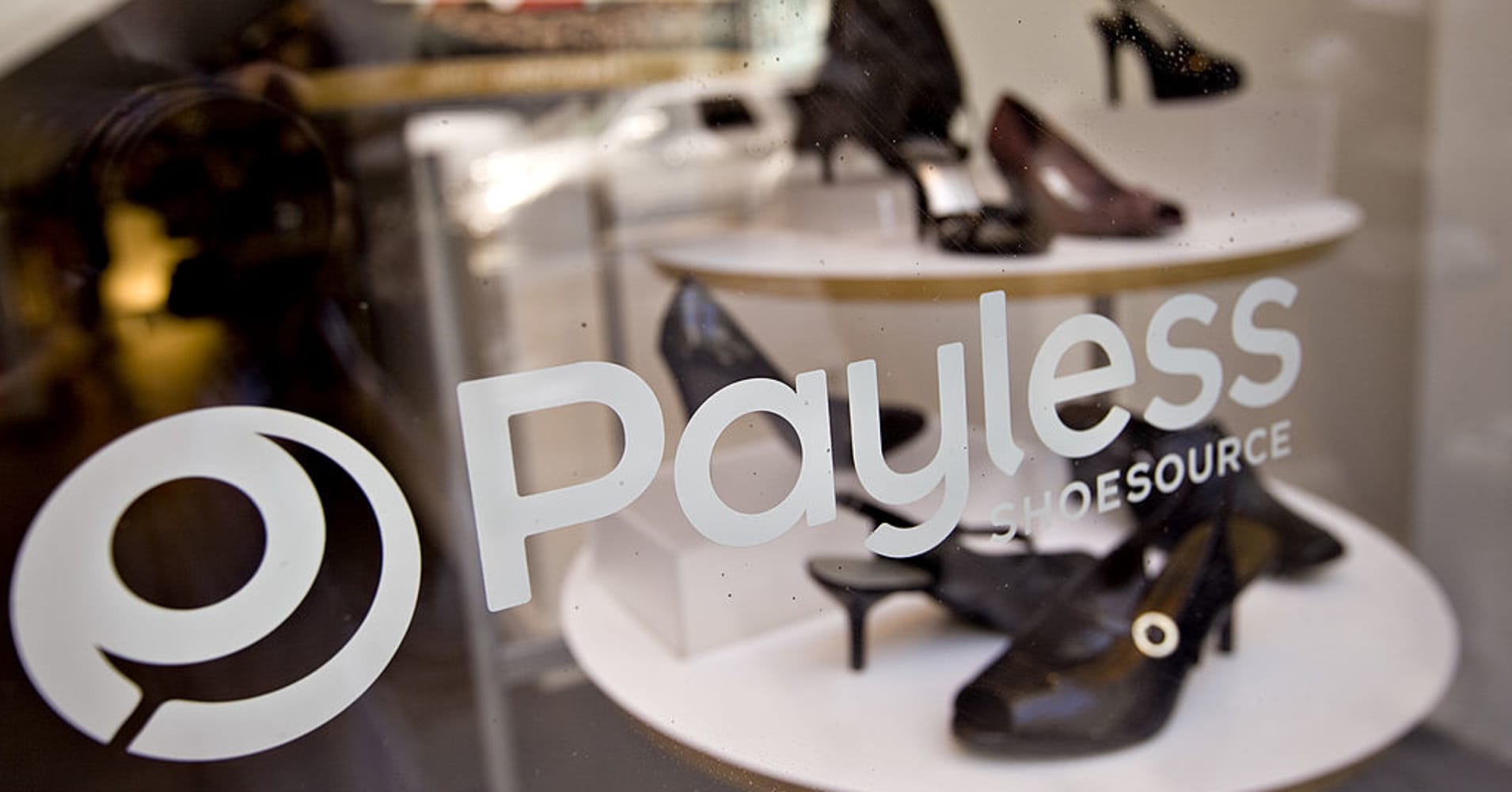
Payless ShoeSource filed for bankruptcy protection on Sunday evening, as the shoe retailer prepares to wind down its 2,500 U.S. stores.
CNBC previously reported the chain was preparing for a potentially imminent bankruptcy. In hopes of keeping some stores open, it had been seeking a buyer for swaths of its domestic real estate. Ultimately though, no deals would be struck.
The retailer, founded founded in in 1956 in Topeka, Kansas, began liquidation sales for its U.S. stores on Feb 17. It expects all stores to remain open until at least the end of March and the majority until May. It is also winding down its e-commerce operations.The liquidation will not impact its franchised or Latin American stores.
Payless, which first filed for bankruptcy protection in April 2017, had been notable for its ability to emerge from complete financial collapse. That feat has escaped many other retailers, like Toys R US, which shuttered over a year ago.
During its four-month stint in bankruptcy, Payless eliminated nearly 700 stores. It blamed its initial bankruptcy filing on “antiquated” inventory management and port strikes in the West Coast that delayed its shipments before the crucial Easter holidays, and ultimately let to a glut of off-season shoes.
The retailer promised that, upon its reemergence, it would lean on its strong brand name in the U.S. and growth in Latin America. It was then the region’s largest specialty footwear retailer, according to court documents.
Much of its initial debt stemmed from the roughly $2 billion sale of its former parent, Collective Brands, to Wolverine World Wide and private-equity firms Blum and Golden Gate. Blum and Golden Gate held on to Payless, while Wolverine took control over Collective’s other brands, like Sperry Top-Sider, Stride Rite, and Keds.
Yet like several of its peers that filed for bankruptcy over the past several years, Payless has found its stay out of court protection challenging. Retailers like Gymboree have emerged from bankruptcy in recent years, only to boomerang back.
The retail industry continues to be in a state of upheaval, as shoppers head online and demand more out of their shopping experience. The changes benefit giants like Walmart with scale or smaller, local shops — but leave those in the middle squeezed. Larger retailers have the resources to invest in supply chain and online capabilities, while local retailers can cater to regional tastes.
Payless, in particular, has faced competition from larger competitors like T.J. Max parent TJX Companies, which has a market-capitalization of $62 billion and shoe retailer DSW, which has a market capitalization of $2.2 billion.
Credit ratings agency S&P in February noted earlier this month Payless faced the “potential for continued supply chain issues, intensified competition, and lower store traffic.”
Be the first to comment